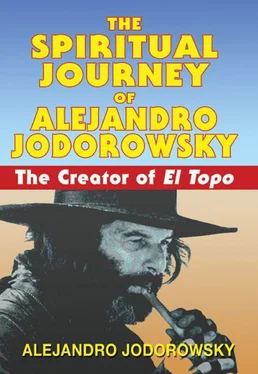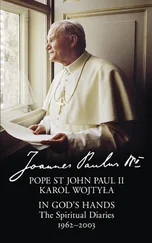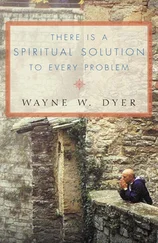Ejo Takata smiled. Mimicking my last phrase and way of talking, he said: “The mind does not behave in a certain way — it is simply there. Its quality depends on the use we make of it.
“I would like to remind you of a koan from the secret book. The disciple Hokoji *34was agitated and came to ask his master Baso: ‘What transcends existence?’ Baso answered: ‘I will tell you when you have drunk the entire Western River in a single gulp.’ Hokoji suddenly became calm, bowed respectfully, took a cup of tea, and drank it down in a single gulp.”
“I know, I know, Ejo. It is impossible to give a true reply to such questions. How can we define the indefinable, describe the indescribable, or think the unthinkable? Instead of giving a solution, Baso demanded the impossible of his student: to swallow a river. Hokoji realized that there is nothing beyond existence. By drinking a gulp of tea, he sided with the natural against the metaphysical. Yes, I know, but I am not a monk. I am a poet. And the poet’s ideal — even though he knows the project is doomed to failure — is to express the eternal silence in words.”
“Alejandro, neither of us is a monk or a poet. We are beings beyond definitions. When I asked you to define God, I was hoping that instead of elaborating on your ‘artistic’ theories, you would say something like: ‘I will tell you when you drink an entire river and eat a herd of elephants, bones and all.’ Now, how about leaving here and having a nice cup of tea or some tacos?”
I had the sensation of lightning striking my tongue, and I felt like biting it off. Of course I understood that words such as God, spirit , and infinite circle are interchangeable, but I was still enraged. I felt an immense rage that had been accumulating for years. By what right could this Japanese make fun of me when he himself was caught like a fly in the web of Buddhism? I began to spit out words in anger. I knew that much of what I was saying was foolish, but I could not restrain myself, because I still had an arrogant desire to shake that granite self-assurance I had always perceived in him.
“Ejo, you are fond of repeating that maxim of ‘If you meet the Buddha on the road, cut off his head.’ Yet you yourself continue to meditate in the same position as the first patriarchs. You have continued to wear your kesa, which imitates the Buddha’s renunciation of the world, and you repeat like a parrot or a fanatic the sutras of his words. You fill your days with useless ceremonies that you learned as a child. You live in a past that is not even your own. Among millions of poor Indians, Shakyamuni was the son of royalty and wealth. His father, the king, gave him everything: a palace surrounded by fabulous gardens, exquisite food, the most elegant dress, the most beautiful of women, hundreds of servants. Living in this luxurious prison, he did not know the misery of the lives of his numberless servants. Suddenly, because a small, dead bird fell upon his head, the future Buddha had a crisis like that of a hysterical woman. Reality was not what he thought it was! So he reacted as spoiled children the world over react, and instead of learning to accept life as it is, he began to hate it. ‘Life is suffering!’ he proclaimed. ‘It is a horror of old age, illness, and death! This is all a result of being born! To be free, I must reject matter, reject incarnation, never create a new body by mating with a woman, never enjoy the pleasures of the senses. Flee, flee, flee this existence!’ He was capable of leaving his entire family and exchanging his palace for the shade of a tree. He was able to deny himself. Ashamed of his earlier life of wealth and privilege, he became the poorest of the poor, wearing a robe made of funeral shrouds that he scrounged at the burning ghats. But this is still essentially the reaction of a spoiled child!
“We, on the other hand, have not been raised in the luxury of an artificial paradise; we have always known the misery and conflicts of the world. We grew up knowing that even if we had a roof over our heads, there were many others in this world who didn’t and that every time we had food to eat, there were millions of children going hungry. We were raised among egoists, old people, sick people, dying people — yet we were still able to celebrate the dawning of every new day! Would we have agreed to don the garments of corpses? Never! This kesa of yours is not for us, because we do not want to escape life! Even if we see life as an endless cycle of reincarnation, why should we want to free ourselves from this sacred cycle? We shall return again and again. Little by little, we will make the world a bit better, we will alter the cruel laws of the cosmos, because we are the consciousness, the best aspect of the Creator. We must develop this consciousness from life to life by communicating it and multiplying it. Ejo, we are here in this life with an immense responsibility: We cannot cease to exist as long as we have not perfected this universe, as long as beings still kill and destroy each other. We must return again and again until everything is joy and the love of light is in perfect harmony with the love of darkness. .”
At this point, I broke into tears and had to stop speaking. Ejo held me gently in his arms until my sobbing ceased. Delicately, he helped me out of the robe. He stretched out the kesa on the ground, folded it elaborately, like an origami design, as he had learned in the monastery, until it was reduced to a rectangle. Then he told me, calmly:
“My friend, it is easy for you to say that traditional sutras and teachings are lies, because they are only words. Yet these words propose experiences that can plunge us into a deeper reality. The foundational myths are necessary, because we cannot construct a society without them. It would be dangerous to try to destroy them, for such destruction would undermine the foundations on which human relationships are based and replace them with nothing. On the other hand, it is very useful to reinterpret them in a way that is in accord with what we both value. If you feel this interpretation, you will experience it.
“As for this kesa, it is now like an old, worn-out skin. Thanks to many generous hands, it has acquired its current form and served as a recipient for consciousness. It is like a caterpillar’s cocoon, and now the butterfly is ready to spread its wings. It would be stupid to continue to live in the boat that has served to help you cross the river to the other shore.
“The reason I revere the memory of Shakyamuni is because of what his figure has given the world — unlike you, I don’t bother about whether he was historically this or that or whether his deeds were mythic or real.
“Yet your poet’s point of view has shown me something that my monk’s imagination was unable to see: The patriarch gathered a bunch of funeral rags, sewed them together with care and respect, and made himself a robe. This amounts to an artistic creation, but for centuries, we have been merely imitating this creative act. Hence this kesa is not a creation of my own soul; it is ultimately an imitation of the work of Shakyamuni. It actually belongs to him, not to me. Times have changed, and we are not living in India or Tibet. Still less are we practicing the original Chinese Ch’an Buddhism. Zen must adapt itself to each country according to the customs of its people. Otherwise, it will become a form of religious imperialism. It is not Mexico that needs Japanese Zen, it is Japanese Zen that needs Mexico. The Tarahumaras weave a type of pure, simple, white linen cloth. It is a bit of luxury in their misery, symbolizing the desire for a cleaner and better life. I shall weave my own kesa with that cloth.”
Ejo arose, gathered some dry branches, and lit a fire. Upon it he placed his carefully folded old robe. With great tenderness, he watched it burn; he wore the kind of expression of loving farewell to a friend who will never return. His eyes full of tears, he turned his back and took the path that led out of the woods and back to the city.
Читать дальше












